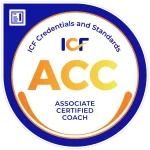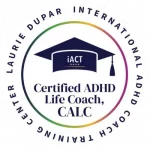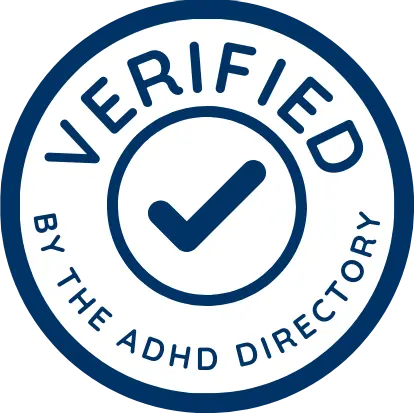Clients work with me for a variety of reasons: What resonates with you?
✅ Do you suspect you have ADHD but haven’t been diagnosed.
✅ Perhaps you’ve attempted to manage your ADHD on your own but haven’t seen lasting success.
✅ Maybe you’re feeling overwhelmed and urgently need to change.
✅ You are neurodivergent and need help creating a life around your skills and strengths.
✅ You’ve self-diagnosed ADHD based on personal research or experiences.
✅ You’re managing your ADHD well and aim to reach the next level of personal development with the support of an ADHD coach.
✨ Whatever your starting point, coaching provides the structure, strategies, and accountability to help you thrive.
👉 Ready to explore whether it’s the right fit? Book your free Discovery Session today.
Absolutely not! People choose ADHD life coaching for a variety of reasons, and while I specialise in ADHD (and neurodiversity) coaching, my certification and skills as an ADHD Life Coach allow me to assist anyone looking to enhance their life.
Whether it’s overcoming challenges, reaching personal or business/work goals, or improving overall well-being and daily habits, my coaching is designed to support anyone ready to make positive changes.
If you’re curious about ADHD and how it may relate to your experiences, you may find my What is ADHD page helpful. It explains what ADHD is, how it affects executive functioning, and the unique challenges and strengths that come with it.
If you’re wondering how coaching can help, feel free to reach out—I’d be happy to chat about whether it’s the right fit for you if you book a complimentary Discovery Session.
Not at all. ADHD coaching is effective whether you take medication or not.
Medication can help with symptoms like focus and impulsivity, but it doesn’t teach the practical life skills and daily habits you need to thrive – such as time management, organisation, and productivity. That’s where coaching makes the difference.
✅ Waiting for diagnosis or titration? Coaching gives you immediate strategies so you don’t feel stuck in the meantime.
✅ On medication? Coaching helps you get the most out of it by building structure, habits, and systems that support your brain.
✅ Not taking medication? Coaching offers alternative tools and strategies tailored to you.
Whatever your treatment path, ADHD coaching empowers you with skills, confidence, and strategies designed around your unique needs.
✨ Not sure if it’s the right fit? Book a free Discovery Session and let’s explore how coaching could support you.
Yes! While my coaching is specialised in ADHD, I also work with individuals who have AuDHD (Autism + ADHD), dyslexia, dyscalculia, dyspraxia, and other neurodivergent traits. Many of my clients experience overlapping challenges related to executive function, organisation, motivation, and emotional regulation, and I tailor my approach to fit their unique needs.
The strategies I use are flexible, strengths-based, and personalised, recognising that each brain works differently. Whether you struggle with time management, focus, sensory sensitivities, or processing challenges, we’ll work together to find solutions that align with the way you think and navigate the world.
If you’re unsure whether my coaching would be the right fit for you, feel free to book a complimentary Discovery Session, and we can explore how I can best support you.
Absolutely. ADHD coaching is a powerful tool for professionals, entrepreneurs, freelancers, digital nomads and business owners who want to thrive in their work without overwhelm and burning out.
With coaching, you’ll learn how to:
✅ Master time management & productivity – plan, prioritise, and finish tasks
✅ Stay organised & in control – build simple systems for projects, deadlines, and admin
✅ Beat procrastination & perfectionism – get unstuck and keep momentum
✅ Sharpen focus & attention – manage distractions and work with your brain, not against it
✅ Build confidence & self-advocacy – communicate clearly and step into your strengths
✅ Prevent burnout & create balance – design routines that support energy and wellbeing
✅ Grow your business with clarity – make better decisions, stay accountable, and structure your work in an ADHD-friendly way
Whether you’re climbing the career ladder, running your own business, or simply want work to feel less overwhelming, ADHD coaching offers tailored strategies to help you succeed.
✨ See how other clients have transformed their work and daily lives on my Testimonials page.
Yes! I work with English-speaking clients worldwide, including the UK, Europe, Australia, New Zealand and Asia. Because I offer online ADHD coaching via Zoom, location is not a barrier. We simply need to align our time zones.
My booking system automatically shows both UK time and your local time, making scheduling straightforward. Over the years, I have supported many international ADHD clients, including expats, digital nomads, professionals, entrepreneurs, and service / military personnel stationed overseas.
All of my adult ADHD coaching packages are the same for UK and international clients. Sessions are delivered virtually via Zoom, and payments are handled securely through Stripe. The system accepts multiple currencies, and most clients simply pay in their local currency with Stripe handling the conversion automatically.
It all begins with a free Discovery Session. This is a relaxed conversation to make sure we are a good fit and to explore how ADHD coaching can support you.
If we decide to work together, you can choose a six or twelve session package. In our first sessions, we will use simple tools such as strengths profiling and learning-style questionnaires that are woven into the coaching process.
From there, we will set clear, tailored goals so every session moves you closer to managing ADHD with confidence, building your personal “toolbox” of habits/strategies, and creating lasting change.
✨ Ready to get started? Book your complimentary Discovery Session today.
Most clients begin with weekly sessions. This consistency helps us build momentum, create strong foundations, and quickly put strategies into practice. As coaching progresses, many clients transition to bi-weekly appointments, giving more space to apply new habits/tools and reflect between sessions.
The overall coaching journey usually lasts 3 to 6 months, though this depends on your goals and needs. During this time we will assess your challenges and strengths, refine strategies and habits, and support you in creating lasting change.
My aim is always to empower you with the insight, skills, confidence, and systems to continue growing independently beyond our sessions.
Please note: my Access to Work spaces are extremely limited. While my capacity is primarily dedicated to private and business/corporate clients (plus developing some exciting new programmes launching in 2026), I may be able to accommodate a small number of Access to Work clients depending on timing and fit.
If you’re self-employed, ADHD business coaching can usually be claimed as a legitimate business expense, allowing you to invest in your personal and professional development right away.
You can explore Access to Work funding directly through the government website, as it may help you access other workplace support and equipment in the future. Please note that processing times are currently lengthy – up to a year for employed applicants and over 12 months for those who are self-employed (as of autumn 2025).
Private coaching offers immediate access and a personalised approach, so you can start making meaningful progress without delay.
All coaching payments are made securely in advance via Stripe. You can pay directly through your Client Account Page or by using the payment buttons on my Pricing page. Stripe accepts a variety of currency and payment methods, making the process quick and convenient.
If your coaching is funded by a third party such as an employer or organisation, they can pay through Stripe or I can issue an invoice for BACS payment if required.
The cost of coaching depends on the package, session frequency, and duration you choose. Full details are available on my Pricing page, and I am always happy to discuss options that suit your needs.
✨ Once payment is confirmed, you can book your sessions at times that work for you within my hours of Monday to Wednesday, 9am to 5pm (London time).
Yes. I offer an optional tool called Fathom Notetaker, which provides a clear written summary after each coaching session.
Fathom is a secure, AI-powered Zoom assistant that transcribes our conversation and creates an easy-to-read overview of the key points and action steps. Many clients find this invaluable for reviewing progress and staying on track between sessions, while allowing us to stay fully present during the call.
Here’s what you need to know:
✅ GDPR-compliant with secure data storage
✅ Accessible only to me as your coach
✅ You can request copies or deletion of summaries at any time
✅ I always ask permission before using Fathom
✅ Completely optional — coaching works just as well without it
You are free to use this feature or not, and you can change your preference at any time.
Yes, I sometimes use AI tools to support the background elements of my business – particularly admin, communication, and content creation. For example, I may use AI to help refine written materials (like emails or resources), generate ideas for blog posts, or summarise session notes using tools like Fathom – always with your knowledge and consent.
These tools are used thoughtfully and ethically to support accessibility and reduce admin time, especially as someone with dyslexia and dyscalculia. They do not influence coaching content or decision-making in any way.
The coaching relationship itself is entirely human-led. I use AI only where it helps me maintain a high standard of communication and care behind the scenes. My approach aligns with the ICF Code of Ethics and the ICF AI Coaching Standards and Practical Guide (2025), which emphasise transparency, client trust, and responsible technology use.
👉 Click here to read my full AI use policy
Yes, totally private!
We understand that this is a big responsibility, and we work hard to protect your information and put you in control.
I am registered with the Information Commissioner’s Office (ICO) and fully comply with data protection regulations to ensure the confidentiality and security of client information.
Your information is encrypted and securely stored as a client or customer of The Adult ADHD Coach. Plus, we are GDPR compliant; this gives you new protection rights and assures you better access to your data.
Please reference The Adult ADHD Coach Cookie Policy and Privacy Policy for further information.
You have the right, subject to certain exemptions, to obtain a copy of any personal data we hold about you and to correct any inaccuracies in such data. If you wish to avail of any of these rights, please contact us here.
When you book a package of appointments you’ll have access to my online booking calendar so you can select a convenient time. You’ll receive an email with your appointment time and Zoom conferencing link. My system sends you reminder emails the day before, on the day, and an hour before your appointment.
Appointments can be rescheduled up to 24-hours before. If you have an emergency on the day please email me to let me know as I’m unable to replace missed sessions.
My usual working hours are Monday to Wednesday, 9 am to 5 pm (London time), for 1:1 clients. I work on my group coaching programme on Thursdays (coming in 2026)





